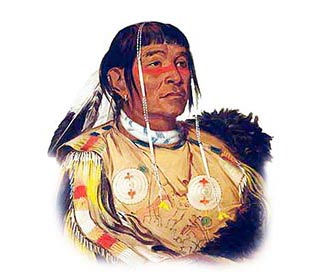Fast Facts about the History of Tennessee Indians
The climate, land, history, environment and natural resources that were available to the indigenous Indian tribes in Tennessee resulted in the adoption of the Southeast culture. - Name of State: Tennessee
- Meaning of State name: Named after Cherokee name "Tanasi" meaning 'Little River'
- Geography, Environment and Characteristics of the State of Tennessee: Great Smokey Mountains, low ridges Applachian Valley, flat Cumberland Plateau, coastal plain to the west; Mississippi alluvial plain and swamp areas
- Culture adopted by Tennessee Indians: Southeast Cultural Group
- Languages: Muskogean
- Way of Life (Lifestyle): Hunter gatherers and hunter farmers
- Types of housing, homes or shelters: Asi Wattle and Daub houses
History Timeline of the Tennessee Indians - 10,000 B.C. : Paleo-Indian Era (Stone Age culture) the earliest human inhabitants of America who lived in caves and were Nomadic hunters of large game including the Great Mammoth and giant bison.
- 7000 BC: Archaic Period in which people built basic shelters and made stone weapons and stone tools
- 1000 AD: Woodland Period including the Adena culture (mounds, a burial complex and ceremonial system. The Adena lived in a variety of locations, including: Ohio, Indiana, West Virginia, Kentucky, and parts of Pennsylvania and New York.) and Hopewell cultures
- 1000: Mississippian Culture established. This was the last of the mound-building cultures of North America in Midwestern, Eastern, and Southeastern United States
- 1540: Hernando de Soto (1500-1542) explores the area in search of gold
- 1673: 1673 James Needham and Gabriel Arthur sent by Virginia trader to scout trade with Cherokee Indians and explore the Tennessee River Valley
- 1775: Daniel Boone blazes a trail called the Wilderness Road from Virginia across the mountain at Cumberland Gap to open the land to settlement
- 1758: The Anglo-Cherokee War (1758–1761) - The Cherokee uprising in present-day Tennessee, Virginia and the Carolinas
- 1775: 1775 - 1783 - The American Revolution.
- 1776: 1776-1794 Chickamauga Wars aka the Second Cherokee War, a series of conflicts of the Cherokee against the encroachment into their territory. Open warfare broke out in 1776 between the Cherokee led by Dragging Canoe in East Tennessee.
- 1776: July 4, 1776 - United States Declaration of Independence
- 1803: The United States bought the Louisiana Territory from France for 15 million dollars for the land
- 1812: 1812 - 1815: The War of 1812 between U.S. and Great Britain, ended in a stalemate but confirmed America's Independence
- 1813: Creek War (1813–1814) erupted in Alabama and Georgia. The Creek Indians were defeated by American forces led by Andrew Jackson at Talladega in 1813, at Emuckfau, in 1814, at Enotochopco in 1814 and finally at the Horseshoe Bend of the Tallapoosa River when 750 Creeks were killed or drowned, and 201 whites were killed or wounded.
- 1830: Indian Removal Act
- 1832: Department of Indian Affairs established
- 1861: 1861 - 1865: The American Civil War.
- 1862: U.S. Congress passes Homestead Act opening the Great Plains to settlers
- 1865: The surrender of Robert E. Lee on April 9 1865 signalled the end of the Confederacy
- 1887: Dawes General Allotment Act passed by Congress leads to the break up of the large Indian Reservations and the sale of Indian lands to white settlers
- 1969: All Indians declared citizens of U.S.
- 1979: American Indian Religious Freedom Act was passed
History of Tennessee Indians - Destruction and Decline
The history of the European invasion brought epidemic diseases such as tuberculosis, cholera, influenza, measles and smallpox. The Native Indians of Tennessee had not developed immunities against these diseases resulting in huge losses in population. Exploitation including the leverage of taxes, enforced labor and enslavement were part of their history, taking their toll on the Tennessee Indians. |
